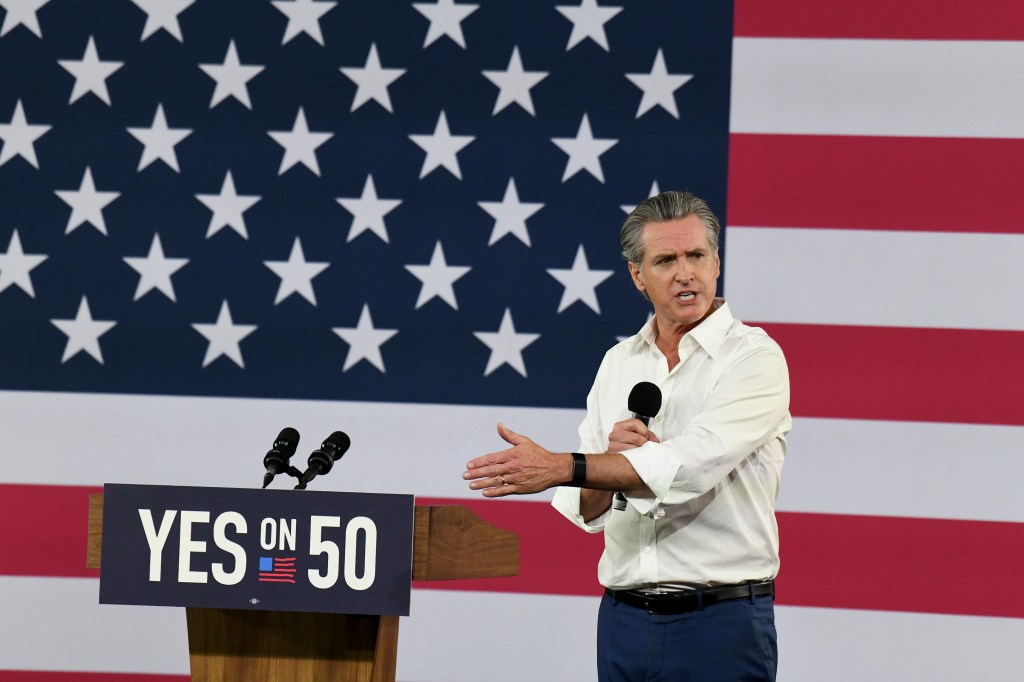
Proposition 50 does exactly what critics warned it would: it has now sidelined California’s independent redistricting commission for congressional seats until 2032, and it has substituted a set of partisan maps designed to flip five Republican-held districts into reliable Democratic seats, while shoring up Democrats in an equal number of competitive seats.
What makes its passage especially striking is that Californians overwhelmingly like the independent commission. According to a Public Policy Institute of California survey taken last month, 72 percent of voters say it has been “mostly a good thing” that redistricting authority was taken away from politicians and given to the citizens’ commission in 2010. That view holds across party lines, across regions, and across demographic groups — even among the very voters who supported Prop. 50. In fact, majorities of both Yes voters (77 percent) and No voters (67 percent) agreed that the commission has been a positive reform. Yet Prop. 50 didn’t just pass — it passed overwhelmingly. So, the question becomes: why?
The first answer is execution. Once Governor Newsom decided to pursue new maps, Democratic leadership across California aligned instantly. Legislative obstacles were swept aside. Legal challenges were dismissed out of hand by the Democrat-stacked State Supreme Court. Public and private employee unions, as well as significant businesses that either get subsidies from or are regulated by the government, wrote massive seven-figure checks quickly. The nearly $300 million cost of staging a special election was treated as incidental. When one party controls every institutional lever — and uses it — there appear to be no safeguards capable of slowing or stopping such an effort.
The second, and arguably decisive, factor was message framing. Prop. 50 was not sold to voters as a technical change to the redistricting process. It was sold as a symbolic blow against Donald Trump. That framing transformed a complex procedural question into a simple yet powerful statement. The mechanics are abstract; dislike of Trump is visceral. In a state where opposition to Trump has become a political identity, that alone was enough to anchor support. The more the campaign tied the measure to national politics, the less the specifics mattered. Emotion outperformed process — as it almost always does.
The funding imbalance reinforced this advantage. The Yes campaign raised over $170 million. Meanwhile, opposition fundraising never reached the scale required to counter that level of saturation. The Yes side outraised the No side by a crushing two-to-one ratio – a difference made more pronounced because almost all of the No on 50 funds were spent very early, much of it before ballots were even mailed out..
A decision was clearly made back in Washington that the amount of additional campaign funding necessary to try to defeat Prop. 50 — as much as another $75-$100 million — was not worth it. With finite national resources, they decided, which is reasonable, that their campaign funds would be better used in dozens of competitive House seats elsewhere in the country, many of which are already held by embattled Republican incumbents. Once that strategic call was made, the Yes side had the airwaves largely to itself during the critical voting period when ballots were already in voters’ hands.
A third factor was the official ballot title and summary written by Attorney General Rob Bonta. The voter guide described Prop. 50 as requiring congressional districts to be drawn “in the same manner” as state legislative districts by the citizens’ commission — language that suggested continuity and procedural fairness. For many voters skimming the guide, Prop. 50 appeared to protect the commission process rather than override it. Combine that framing with the lack of a consistent opposition presence during the final weeks of voting, and it becomes clear how many independents and even Republicans likely voted Yes because they believed they were defending the very system the measure was intended to replace.
California just demonstrated that a reform can be popular, respected, and working — and still be erased the moment it becomes inconvenient to those in power. The independent commission didn’t fail. It was crushed. And now that the Democrats who rule the state have learned they can steamroll any safeguard with money, messaging, and muscle, this won’t be the last guardrail to fall.
Jon Fleischman is a Republican political consultant who has successfully passed a dozen ballot measures nationwide. He is a resident of Yorba Linda. He writes at SoDoesItMatter.com.



